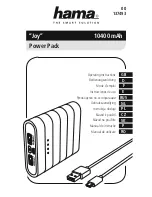
AIR NIBBLER
GENERAL SAFETY RULES
WARNING!
●
Improper operation or maintenance of this tool could result in
personal injury and/or property damage. Read and understand all
warnings and operation instructions before using this tool.
●
When using this tool, these basic safety precautions should
always be followed to reduce the risk of personal injury and/or
property damage.
Workplace conditions
1. Always work in a clean, dry, well-ventilated area free of combustible materials.
Never operate the tool near flammable substances such as gasoline, naphtha,
cleaning solvent, etc.
2. Dress properly. Do not wear loose clothing. Tie up or cover long hair, remove any
jewelry, necklaces, etc., which might become caught by the tool.
3. Keep the work area well lit and free of clutter. Slips, trips and falls are major
causes of workplace injury. Be aware of excess air hose left on your walking way
or on the working surface.
4. Ensure that there are no electrical cables, gas pipes, etc., which can cause a
hazard if damaged by use of the tool.
5. Keep visitors a safe distance from the work area. Keep children away.
Use of air tools
1. Stay alert and use common sense. Watch what you are doing. Do not operate
the tool when you are tired or under the influence of alcohol, drugs or medication.
2. Do not overreach. Keep proper footing and balance at all times.
3. Always wear eye protectors which provides protection from flying particles from
the front and side when using the tool. Ear protectors should also be worn.
4. Never use oxygen, carbon dioxide, combustible gases or any other type of
bottled gases as a power source for this tool.
5. Always verify prior to using this tool that the air source has been adjusted to the
rated air pressure range. Never connect to an air source that is capable of
exceeding 200psi.
6. Do not connect the air supply hose to the tool with your finger on the trigger.
7. Do not exceed the maximum working pressure 90psi/6.3bar for the tool.
Excessive pressure will reduce the tool life and/or might cause a hazardous
situation.
8. Never leave the operating tool unattended. Disconnect the air hose when the tool
is not in use.
9. Keep the air supply hose away from heat, oil and sharp edges.
10. Check the air supply hose for wear and/or leaks before each use. Make sure that
all connections are tight and secure.




































